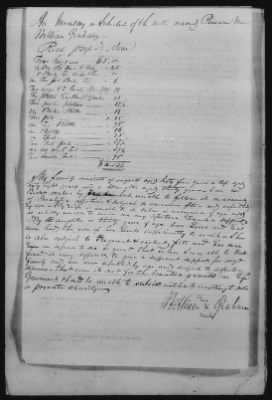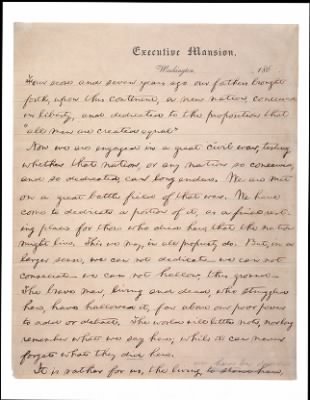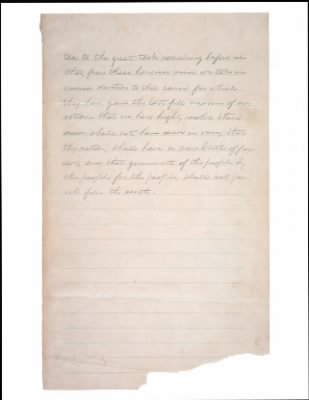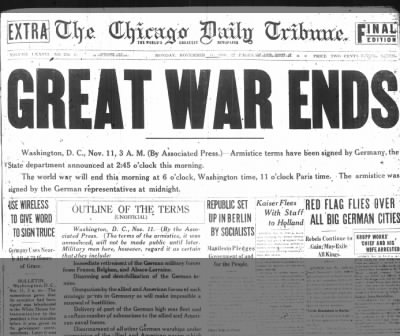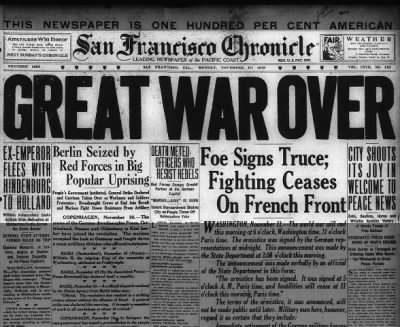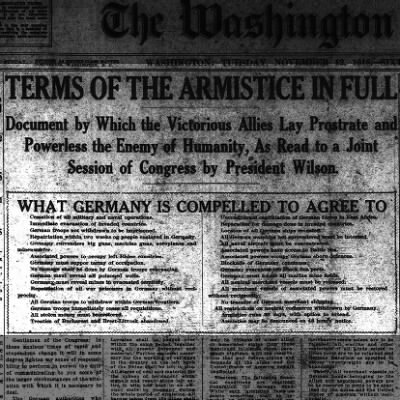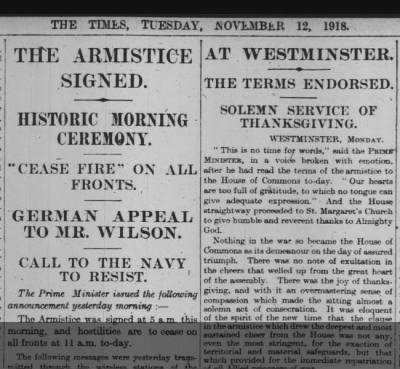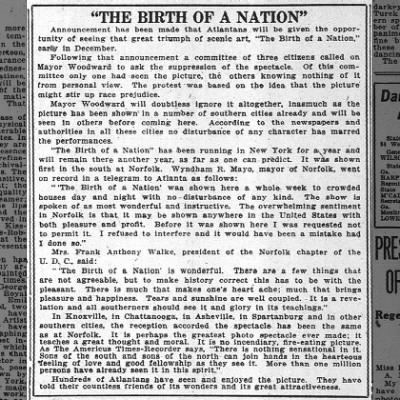William Graham was 64 years old when he submitted this document in support of his Revolutionary War pension application in 1820. The pension laws in effect then required him to prove not only his service, but also his need for monetary support. The inventory seen here lists his personal property.
November 20, 2009
Using Revolutionary War Pension Files
A nice post on the NARAtions blog today discusses the value of pension files and links to an interesting example from Footnote.
Labels:
Documents,
National Archives,
Revolutionary War
November 19, 2009
Remembering the Gettysburg Address
Today is the 146th anniversary of the Gettysburg Address.
This brief speech contains what may be Abraham Lincoln's most memorable mistake, "The world will little note, nor long remember what we say here."
Here's my transcription of this early draft:
It's interesting to compare this with the address Lincoln gave (here's the version on the Lincoln Memorial) and see how he worked through the details.
This brief speech contains what may be Abraham Lincoln's most memorable mistake, "The world will little note, nor long remember what we say here."
Here's my transcription of this early draft:
Four score and seven years ago our fathers brought forth, upon this continent, a new nation, conceived in liberty, and dedicated to the proposition that "all men are created equal."
Now we are engaged in a great civil war, testing whether that nation, or any nation so conceived and so dedicated, can long endure. We are met on a great battle field of that war. We have come to dedicate a portion of it, as a final resting place for those who died here, that the nation might live. This we may, in all propriety do. But, in a larger sense, we can not dedicate...we can not consecrate...we can not hallow this ground. The brave men, living and dead, who struggled here, have hallowed it, far above our poor power to add or detract. The world will little note, nor long remember what we say here, while it can never forget what they did here.
It is rather for us, the living, we here be dedicated to the great task remaining before us... that from these honored dead we take increased devotion to that cause for which they here, gave the last full measure of devotion—that we here highly resolve these dead shall not have died in vain, that this nation, shall have a new birth of freedom, and that government of the people, by the people, for the people, shall not perish from the earth.
It's interesting to compare this with the address Lincoln gave (here's the version on the Lincoln Memorial) and see how he worked through the details.
Labels:
Civil War,
Documents,
Famous Folks
November 11, 2009
World War I Ends - November 11, 1918
On November 11, 1918, Germany agreed to the terms of an armistice ending World War 1.
Here are a few newspaper pages reporting the end of the war:
Here are a few newspaper pages reporting the end of the war:
Labels:
Newspapers,
World War I
NARA Asks for Input on Motion Picture File Formats
Today, on the NARAtions blog, the folks at the National Archives are asking how we would like them to make their motion picture archives available.
I'm hoping for a streaming solution and one that will make them embeddable. Be sure to give them your input.
In celebration of Veterans Day, here's a WWII news reel from NARA's collection:

I'm hoping for a streaming solution and one that will make them embeddable. Be sure to give them your input.
In celebration of Veterans Day, here's a WWII news reel from NARA's collection:

Labels:
Movies,
National Archives,
World War II
November 6, 2009
D W Griffith's The Birth of a Nation
D W Griffith's epic 1915 film, The Birth of a Nation, is widely considered Hollywood's first blockbuster.
The movie, which alternates between intimate family shots and grand battle scenes with thousands of actors, includes everything from love scenes to the burning of Atlanta. It introduced new film techniques, and cost the equivalent of over 2 million dollars to make.
This 1915 ad from the Poughkeepsie Journal calls it, "The greatest dramatic narrative of the century" and claims that the film has been "Seen by Over Five Million People."
Admission to the film was $2 (equivalent to about $44 today) and theaters were sold out for days. Here's a December 12, 1915 review in the Atlanta Constitution that describes the "clamors of hundreds turned away."
In this article, Griffith justifies the ticket price and predicts future movie prices as high as $5.
The plot, which is based on Thomas Dixon's novel and play The Clansman (the film was originally released under that title), follows two families, one from the North and the other from the South, before, during and after the Civil War and depicts the Ku Klux Klan rising from the chaos of reconstruction to establish order in the post-war South.
By modern standards, parts of the film are melodramatic and overdone to the point of silliness, but Griffith used all the tools available to him to create a spectacle that moved audiences in 1915 and is still powerful today.
Even in its own day, critics blasted the historical inaccuracies and racist nature of the film. The inflammatory narrative lead to violence against African-Americans and rioting in some locations and several major cities canceled performances of the film.
This 1915 review in the Poughkeepsie Journal focused on the spectacle of the show and concludes with, "The play is, as has often been said, rather partisan, and the reconstruction part very much overdrawn and exaggerated, but it furnishes a thrilling drama with the picturesque Ku Klux to the rescue."
In looking through other contemporary newspaper coverage of the film, it was interesting to see the way people responded to the movie. In some cases, it's hard to know what was hype and promotion and what were sincere expressions, but I was struck by statements like this one from a pre-performance article in the Poughkeepsie Journal extolling the "historical worth of this great spectacle."
This two page ad in the Atlanta Constitution includes many endorsements, including one quoting "Prof. Richard A. Dobbie, Superintendent Norfolk City Schools" as saying, "The Birth of a Nation reproduces historical events with marvelous fidelity."
This ad/article, published before the movie came to Atlanta, mentions that three citizens requested the mayor ban the film and then quotes several people in support of it, including "Mrs. Frank Anthony Walke, president of the Norfolk chapter of the U. D. C." who said: "The Birth of a Nation is wonderful. There are a few things that are not agreeable, but to make history correct this has to be with the pleasant. ... It is a revelation and all southerners should see it and glory in its teachings."
I don't think many people today would consider using Griffith's film to teach history, but the Wikipedia article about it claims that, "As late as the 1970s, the Ku Klux Klan continued to use the film as a recruitment tool."
The Birth of a Nation is now in the public domain. In fact, you can watch it online in its entirety at the Internet Archive, here.
The movie, which alternates between intimate family shots and grand battle scenes with thousands of actors, includes everything from love scenes to the burning of Atlanta. It introduced new film techniques, and cost the equivalent of over 2 million dollars to make.
This 1915 ad from the Poughkeepsie Journal calls it, "The greatest dramatic narrative of the century" and claims that the film has been "Seen by Over Five Million People."
Admission to the film was $2 (equivalent to about $44 today) and theaters were sold out for days. Here's a December 12, 1915 review in the Atlanta Constitution that describes the "clamors of hundreds turned away."
In this article, Griffith justifies the ticket price and predicts future movie prices as high as $5.
The plot, which is based on Thomas Dixon's novel and play The Clansman (the film was originally released under that title), follows two families, one from the North and the other from the South, before, during and after the Civil War and depicts the Ku Klux Klan rising from the chaos of reconstruction to establish order in the post-war South.
By modern standards, parts of the film are melodramatic and overdone to the point of silliness, but Griffith used all the tools available to him to create a spectacle that moved audiences in 1915 and is still powerful today.
Even in its own day, critics blasted the historical inaccuracies and racist nature of the film. The inflammatory narrative lead to violence against African-Americans and rioting in some locations and several major cities canceled performances of the film.
This 1915 review in the Poughkeepsie Journal focused on the spectacle of the show and concludes with, "The play is, as has often been said, rather partisan, and the reconstruction part very much overdrawn and exaggerated, but it furnishes a thrilling drama with the picturesque Ku Klux to the rescue."
In looking through other contemporary newspaper coverage of the film, it was interesting to see the way people responded to the movie. In some cases, it's hard to know what was hype and promotion and what were sincere expressions, but I was struck by statements like this one from a pre-performance article in the Poughkeepsie Journal extolling the "historical worth of this great spectacle."
This two page ad in the Atlanta Constitution includes many endorsements, including one quoting "Prof. Richard A. Dobbie, Superintendent Norfolk City Schools" as saying, "The Birth of a Nation reproduces historical events with marvelous fidelity."
This ad/article, published before the movie came to Atlanta, mentions that three citizens requested the mayor ban the film and then quotes several people in support of it, including "Mrs. Frank Anthony Walke, president of the Norfolk chapter of the U. D. C." who said: "The Birth of a Nation is wonderful. There are a few things that are not agreeable, but to make history correct this has to be with the pleasant. ... It is a revelation and all southerners should see it and glory in its teachings."
I don't think many people today would consider using Griffith's film to teach history, but the Wikipedia article about it claims that, "As late as the 1970s, the Ku Klux Klan continued to use the film as a recruitment tool."
The Birth of a Nation is now in the public domain. In fact, you can watch it online in its entirety at the Internet Archive, here.
November 3, 2009
Civil War Photos Online
A friend at the office sent me a link to this site with a nice collection Civil War era photos from the Library of Congress.
I liked the photo of Lincoln's first inauguration against the backdrop of the Capitol dome under construction, this one of the Old Trinity church with the Capitol in the background and this one taken from the cemetery at Harper's Ferry.
This image of Richmond is particularly striking with the ruins of the Gallego Mills overlooking the river.

Here's a very similar picture that comes from NARA's recent project to put the Brady Photos on Flickr:
 The two photos are almost identical, but there are a few small differences and judging from the left bank of the canal, the one from NARA seems to have been taken from a little farther back.
The two photos are almost identical, but there are a few small differences and judging from the left bank of the canal, the one from NARA seems to have been taken from a little farther back.
And here's another picture of Richmond's ruined mills from the NARA Photo Stream:
 You'll find more information about Gallego mills here and a picture of them before the fire here.
You'll find more information about Gallego mills here and a picture of them before the fire here.
I liked the photo of Lincoln's first inauguration against the backdrop of the Capitol dome under construction, this one of the Old Trinity church with the Capitol in the background and this one taken from the cemetery at Harper's Ferry.
This image of Richmond is particularly striking with the ruins of the Gallego Mills overlooking the river.

Here's a very similar picture that comes from NARA's recent project to put the Brady Photos on Flickr:
 The two photos are almost identical, but there are a few small differences and judging from the left bank of the canal, the one from NARA seems to have been taken from a little farther back.
The two photos are almost identical, but there are a few small differences and judging from the left bank of the canal, the one from NARA seems to have been taken from a little farther back.And here's another picture of Richmond's ruined mills from the NARA Photo Stream:
 You'll find more information about Gallego mills here and a picture of them before the fire here.
You'll find more information about Gallego mills here and a picture of them before the fire here.
Labels:
Brady Photos,
Civil War,
Images,
Library of Congress,
National Archives
Subscribe to:
Posts (Atom)

